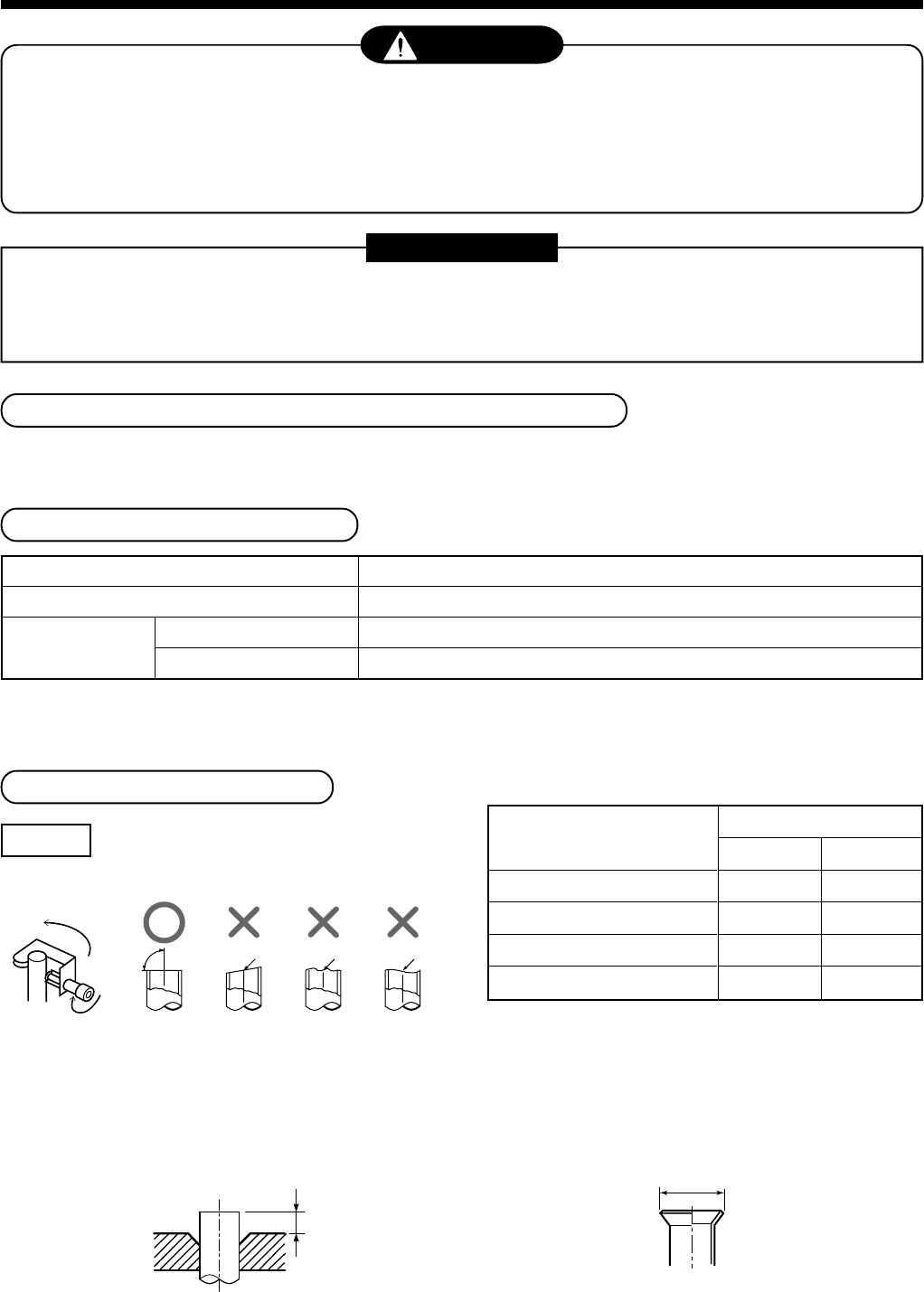
11
5
REFRIGERANT PIPING
WARNING
• If refrigerant gas has leaked during the installation work, ventilate the room immediately.
• If the leaked refrigerant gas comes in contact with fire, noxious gas may generate.
• After the installation work, confirm that refrigerant gas does not leak.
• If refrigerant gas leaks into the room and flows near a fire source, such as a cooking range, noxious gas may
generate.
REQUIREMENT
When the refrigerant pipe is long, set the support brackets to fix the pipe with 2.5 to 3m intervals. If the pipe is
not fixed, abnormal sound may generate.
Be sure to use the flare nuts attached to the indoor unit or those for R410A.
Permissible pipe length and permissible height difference
They are different according to the used outdoor unit. For details, refer to the Installation Manual attached to the
outdoor unit.
Piping material and dimensions
Piping material
Model MMU-
Pipe size (mm)
Gas side
Liquid side
Phosphor deoxidization joint-less pipe for air conditioner
AP0071YH to AP0121YH
Ø9.5
Ø6.4
+0
-
0.4
• Use a clean and new pipe, and check that impurity such as dust, oil, moisture, etc. does not adhere in the pipe.
Pipe forming/End positioning
Flaring
1. Cut the pipe with a pipe cutter.
2. Insert a flare nut into the pipe, and flare the pipe.
As the flaring sizes of R410A differ from those of
refrigerant R22, the flare tools newly manufactured
for R410A are recommended.
However, the conventional tools can be used by
adjusting projection margin of the copper pipe.
• Flaring diam. meter size : A (Unit : mm)
Outer diam. of copper pipe
6.4
9.5
12.7
15.9
A
R410A R22
9.1 9.0
13.2 13.0
16.6 16.2
19.7 19.2
*
In case of flaring for R410A with the conventional
flare tool, pull it out approx. 0.5 mm more than that
for R22 to adjust to the specified flare size.
The copper pipe gauge is useful for adjusting
projection margin size.
90˚
Obliquity Roughness Warp
B
A


















